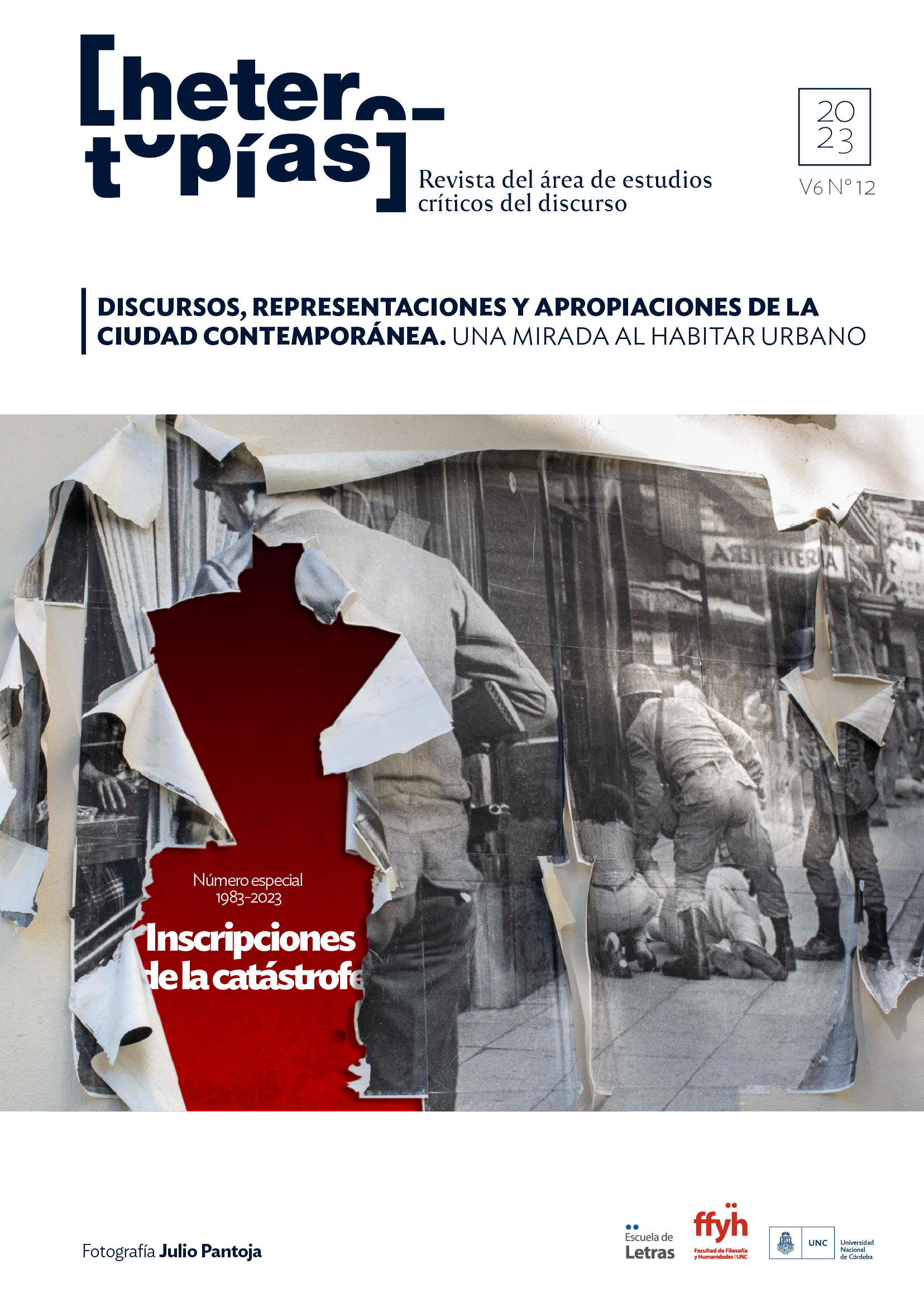Mothers with their own room: some contemporary Argentine poets
Main Article Content
Abstract
The work analyzes, from the framework of gender theory, the poetry of some contemporary Argentine writers. After a brief theoretical and historical review, there is a reading of poems by Wittner, Iannamico, Mariasch, Bejerman, Vera, Arnolfi Villarraza, Larralde, Malusardi. Based on the poetics of each author, the way in which figurations and subjective positions about motherhood and writing appear is indicated. This journey allows us to point out the existence of a new way of conceiving the relationship of women with their desire to be mothers, their relationship with writing, with their partner, among others. This allows pointing out a new position, which, in the spectrum of freedom to decide, makes this choice a possibility to be lived with less conflict, and to appear in the poems neither as a claim nor as a complaint, but as a moment that is integrates a broader vision of the possibilities of women and their domestic and literary work.
Downloads
Article Details

This work is licensed under a Creative Commons Attribution-NonCommercial-ShareAlike 4.0 International License.
Those authors who have publications with this journal, accept the following terms: Those authors who have publications with this journal, accept the following terms:
a. The authors will keep their copyright and guarantee to the journal the right of first publication of their work, which will be simultaneously subject to the Creative Commons Attribution - Non-Commercial - Share Alike (by-nc-sa) Attribution License; no commercial use of the original work or any derivative works is allowed, the distribution of which must be done with a license equal to the one that regulates the original work.
b. Authors may adopt other non-exclusive license agreements for the distribution of the published version of the work (e.g., deposit it in an institutional telematic archive or publish it in a monographic volume) provided that the initial publication in this journal is indicated.
c. Authors are allowed and recommended to disseminate their work through the Internet (e.g. in institutional telematic archives or on their website) before and during the submission process, which may lead to interesting exchanges and increase the number of citations of the published work. (See The effect of open access).
How to Cite
References
Arnolfi Villarraza, J. (2021). Campamento de supervivencia. Buenos Aires. Caleta Olivia.
Beauvoir, S. (2015). El segundo sexo. Valencia: Cátedra.
Bejerman, G. (2019). Aurelia. Buenos Aires. Nebliplateada.
Bignozzi, J. (2010). Si alguien tiene que ser después. Adriana Hidalgo, Buenos Aires,
Butler, J.. (2001). Cuerpos que importan. Sobre los límites materiales y discursivos del “sexo”. Buenos Aires: Paidós.
Genovese, A. (1998). La doble voz. Buenos Aires: Biblos.
Iannamico, A. (2000). Mamuschkas. Bahía Blanca: Vox.
Izzo, F. (2019). Maternidad y libertad. Buenos Aires: Gorla.
Kamenszain, T. (1986). La casa grande. Buenos Aires: Sudamericana.
Kamenszain, T. (2020). Las nuevas poetisas del siglo XXI. En Arnés, Dominguez y Punte (dirs.) Historia feminista de la literatura argentina. Villa María: Eduvim.
Kamenszain, T. (2020). Libros chiquitos. Buenos Aires: Ampersand.
Larralde, G. (2020). La trama materna. Buenos Aires. Caleta Olivia.
Lazarre, J. (2019). El nudo materno. Barcelona: Las afueras.
Lazarre, J. (2022). Una escritora en el tiempo. Barcelona: Las afueras.
Mallol, A. (2003). El poema y su doble. Buenos Aires: Editorial Simurg.
Mallol, A. (2010). Apuntes para una poética infante. En Actas del II Congreso Internacional de Literatura para Niños. Biblioteca Nacional. Secretaría de Cultura. Presidencia de la Nación.
Mallol, A. (2016). La poesía argentina entre dos siglos: 1990-2010. Hacia una nueva lírica. Facultad de Humanidades y Ciencias de la Educación. Universidad Nacional de La Plata. Recuperado de http://sedici.unlp.edu.ar/handle/10915/61068
Mallol, A. (2018). La performance de género como poética activa: de los poemas a la narrativa de Marina Mariasch. RILL Nueva Época, 23, 45-67.
Mallol, A. (2019). “Poeta que es y se dice mujer: las tensiones entre los géneros en la poética de Marina Mariasch”. Descentrada, 4 (1), e109
Malusardi, M. (2021). Mi madre es un piano triste. Buenos Aires: Las furias.
Mariasch, M. (2014). Paz o amor. Buenos Aires: Blatt & Ríos.
Mariasch, M. (2019). Sobre la marcha. Córdoba: La Sofía Cartonera.
Moreno, M. (2020). Contramarcha. Buenos Aires: Ampersand.
Rich, A. (1986). Nacemos de mujer. Valencia: Cátedra.
Robles Blaessinger, R. (2012). Maternidad: ¿Un deseo femenino en la teoría freudiana? Nomadías, 16, 119-135.
Rosenberg, M. (1988). Madam. Buenos Aires: Libros de Tierra firme.
Sarachu, J. (7 de julio de 2018). «Una lección de gramática para lectores expertos y sommeliers de la poesía argentina contemporánea». Julia Sarachu sobre «El filo del hacha», de Ximena Espeche. ClubHem. https://clubhemeditorxs.wordpress.com/2018/07/07/el-libro-de-espeche-es-una-leccion-de-gramatica-para-lectores-expertos-y-sommeliers-de-la-poesia-argentina-contemporanea-julia-sarachu-sobre-el-filo-del-hacha-de-ximena-espeche/
Tubert, S. (1999). Masculino/Femenino; Maternidad/Paternidad. En González de Chávez Fernández, M. A. (Coord.). Hombres y mujeres: subjetividad, salud y género (pp. 53-76) Recuperado de https://dialnet.unirioja.es/servlet/articulo?codigo=2271151
Vera, N. (2019). Colecho. Buenos Aires: El ojo de mármol.
Wittner, L. (2004). La tomadora de café. Bahía Blanca: Vox
